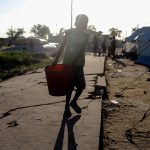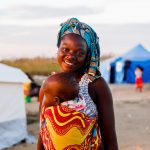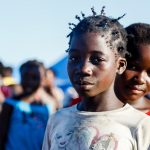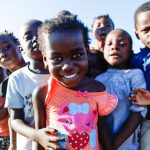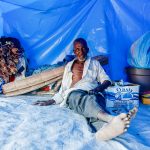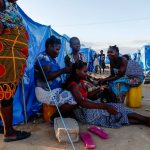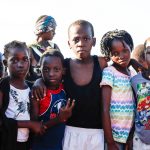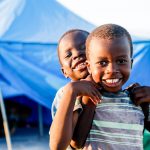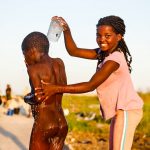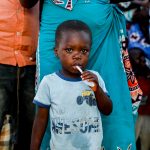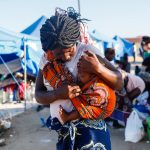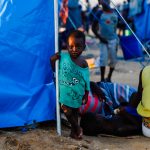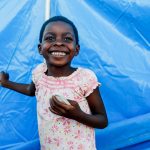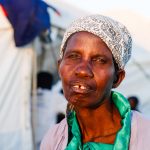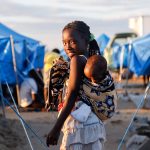The camp does not have a name. But today, in the blue and white tents, close to a thousand Mozambican men and women live here. After the Idai cyclone passed through southeast Africa, affecting Malawi and Zimbabwe as well, millions of people now are trying to rebuild their lives.
A month after the tragedy, the total number of dead exceeds 1,000. 60% of them are from Mozambique. In this country, data from the United Nations shows that 1.8 million people were affected by the destruction caused by the cyclone. Many of them lost their houses and are now without shelter.
In the Mozambican city of Beira, which is one of the most affected cities, the camp housed elderly people, adults, adolescents and many children. According to the United Nations Children’s Fund, at least 1.6 million children need urgent aid in the three countries of the southeast region of Africa, principally humanitarian aid like health, nutrition, protection, education, water and sanitary services.
A report in photos by Rafael Stedile:
Some foreign organizations, like NGOs and others tied to the Catholic Church, also are present in the region and distribute food from a truck. The largest part of the infrastructure there, like the tents, are international donations.
The hygienic conditions are precarious. The tents are very susceptible to wind and not very resistant to rain. The people have access to electricity through solar battery chargers. Whoever has relatives in the camp have visits and maybe extra help.
In the day it is hot and at night it is cold. People do not have expectations about when they will leave the camp. When it rains, the water enters in the tents and people are desperate to protect the kids. There are not enough mosquito nets, mattresses to sleep on, blankets to keep warm from the cold and the quality of the food is not the best. Many complain of repetitive and poorly cooked food.
One of the NGOs that we find in the camp was worried about the contamination of the water. There was no hand-washing process in the tents that served as bathrooms. The water that was dispensed in the bathrooms is mixed with the dirt from the floor where the children played.
Despite the uncertain future and the present full of difficulties, it is still possible to see the smile on the faces of the people and a strength in the posture of the Mozambican people.
*Rafael Stedile is a photographer and part of the Solidarity Brigade of the Vía Campesina, that brings together militants, health professionals and rural workers of Brazilian people’s movements.
Translation: Zoe PC



